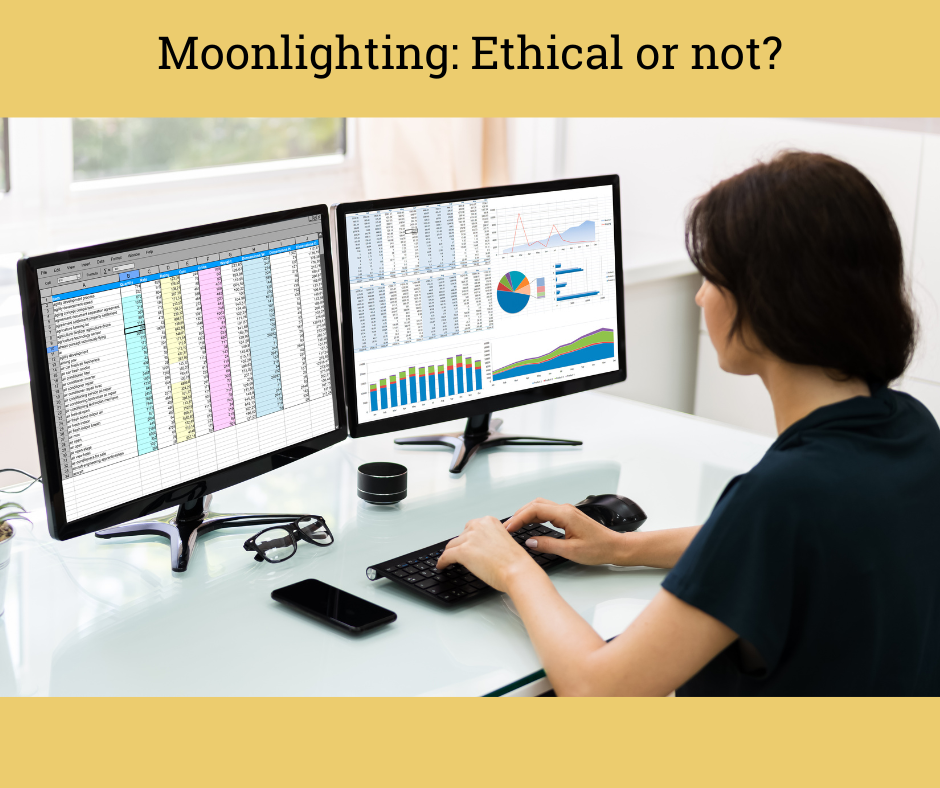
Before we get on to a moonlighting trend, let’s imagine ourselves in a monotonous 9 to 5 job with limited income. Surprisingly, working hours get stretched in almost 70-80% of the companies contributing to long working schedules. Even then, how do employees manage to work for other companies even after being committed to one? This is precisely called Moonlighting. It’s a practice of working on a second job outside the regular business hours to earn extra money. Whether it’s legal or favoured by employers is what we will be discussing in the further section of this article.

How does moonlighting come into existence?
Recently, there has been a lot of chatter on the trend of moonlighting in the tech industry and this picked up pace when Wipro Chairman Rishad Premji criticised this. He went to the extent of calling it cheating. The covid-19 pandemic accelerated this when the technology sector got a boost and people started working from home. They took advantage of the situation and started working for other part-time, freelancing projects. The TOI report mentioned the findings of a survey by Kotak Institutional Equities on 400 people across the IT space and found that 65% knew of people pursuing part-time opportunities or moonlighting while working from home (WFH).
Why are the companies against it?
- Conflict of interest
- Performance issues
- Misuse of employers’ confidential resources
- No zeal for putting in extra efforts
Moonlighting: Is it legal and ethical?
Well, there is a mixed response on this as reported by most of the agencies involved in surveys. The former director of Infosys Mohandas Pai is clear that moonlighting is absolute freedom of an employee as long as he or she commits “n” working hours to the company as mentioned in the contract or offer letter. Clearly, there is a division in the response from the corporate sector if this is ethical. Online grocer Swiggy confirmed that any project or activity that is taken up outside office hours or on the weekend, without affecting productivity, and does not have a conflict of interest, can be picked up by the employees. Even TCS CEO N Ganapathy Subramaniam is positive about freedom of work. You must have heard CP Gurnani, the MD of Tech Mahindra, speaking on authorizing the multiple job policy.
How about the legality in India?
When an employee has a non-compete agreement and a single employment contract, which is the case with most employees, moonlighting could constitute cheating. If, however, there is no such clause in the employment contract, then it is not cheating.
Factories Act, however, prohibits its workers from engaging in other agreements. There are people who believe it is bad for the tech industry and others who support it. In the US and the UK from a tax perspective, over-employment is permissible. We spoke of several top executives from India putting up a mixed reaction on the legality. As long as the employer policy is not getting violated, it’s completely fine to opt for an extra source of revenue from other gigs.
Conclusion
The estimates show that companies might come up with a revised policy in future highlighting the moonlighting concept. The company is obviously concerned about employees’ commitment, confidentiality, and expected outcomes. So, if we think from a practical perspective, neither the employers nor the employees are wrong in their approach. The time has come for them to sit and discuss in order to maintain transparency which is really important for the growth of any organization. Employee satisfaction, work-life balance and other key factors would only contribute to the company’s success if they are valued as assets.



